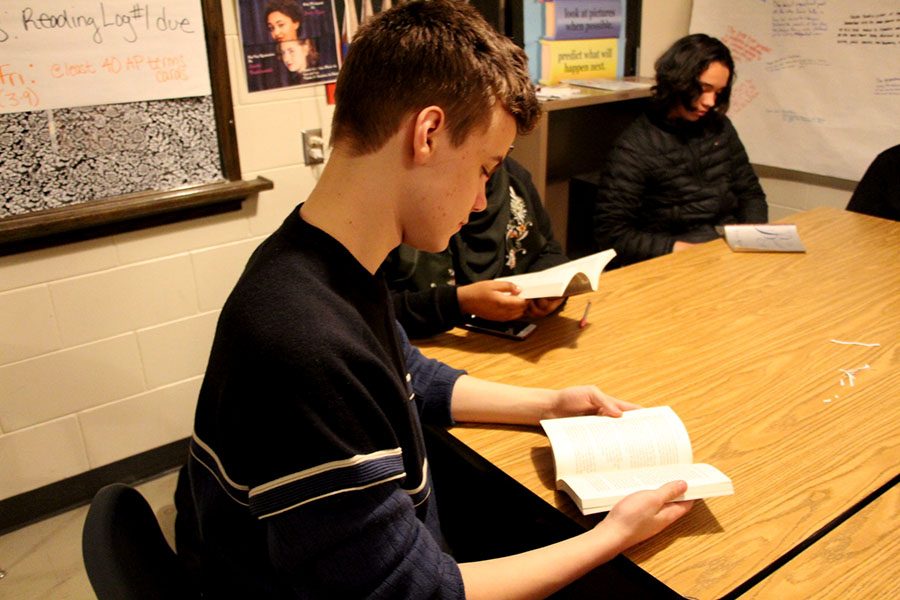How to accommodate for ADHD/ADD students in classrooms
Ian Zibble is a sophomore who has ADD. He’s not medicated for it and has had a lot of difficulty dealing with the current education system. The school is not doing enough for students with ADHD/ADHD and it is negatively impacting our academic careers.
Attention Deficit Disorder (ADD) and Attention Deficit Hyperactivity Disorder (ADHD) are a common yet difficult mental illnesses. ADHD makes it difficult to focus and to sit still. ADD makes it hard to focus but there’s less hyperactivity. Either one can severely impact a student’s educational experience. I believe a lot of the consequences of ADD/ADHD could be circumvented if there were more classes that supported specific interests.
I have ADD and the lackluster grades to prove it. I wouldn’t be a perfect student if I didn’t have ADD, but I still feel that a considerable amount of my academic failings can be attributed to this mental illness. More often than not when a teacher is telling us something he expects us to write down, I am staring at my phone or blankly staring off into space. Even at home I find myself unable to study and do homework — not because I’m lazy or don’t want to, but because I am physically unable to focus for an extended period of time.
Ian Zibble, a sophomore who has ADD, said that “[ADD] affects me a lot personally. I’m not medicated for my [ADD] but it really affects [education] because of the attention problems and it makes paying attention for notes and other things so difficult.”
While it’s unrealistic for teachers to only focus on ADHD/ADD students many of them aren’t doing as much as they could to help students learn. Zibble shares this feeling: “Some teachers don’t really give it their all and don’t make it very hands on and that probably factors in.”
Currently, the main accommodation available to students with mental illnesses that impact learning is a 504 plan.. I believe 504 plans help a lot. They allow students to hand in assignments late without penalty, listen to music during tests, step out of the class if they need to, and various other things that can help students with mental health. These may sound like small advantages to most but for people with mental illnesses these small advantages are necessary.
While many students with mental illnesses have benefited from having 504 plans, many don’t have them because their mental illness hasn’t been diagnosed or identified or the plans just haven’t been created for some other reason. Those students have been forced to watch their academic careers fall apart while feeling helpless to do anything about it. 504 plans also don’t do enough to help two key challenges for kids with mental illness: teaching styles that don’t work for them and the inevitability of simply not being able to pay attention in traditional classes. I think the 504 plans are important but more needs to be done to support kids with ADD/ADHD in being successful.
Most importantly, students with ADD/ADHD need classes that feature more hands-on learning. Most traditional classes consist entirely of a teacher standing at the front of the room reading off of a board or going through a slideshow and trying to force the knowledge into our brains. For me this teaching style isn’t always successful. “Anything that’s just students sitting there and listening to someone talk at them is just very difficult when it’s not you having to do something.” A more hands-on experience would help students with ADHD/ADD get through lessons
However, it is possible that getting rid of lectures could be detrimental to other students who don’t have ADHD/ADD. Zibble believes that lectures aren’t bad for everyone and that some people just learn differently from others. “A lot of kids benefit from lectures and a lot of kids they get that extra boost from that.”
Additional class offerings that focus more on interests and career paths that can still get you credit for the four core subjects would go a long way to helping ADD/ADHD students.
If I’m learning or working in a way that interests me, I’m able to hold my attention for extended periods of time.
For example, I have more interest in writing but not as much in history. If there was a history class that incorporated more writing and storytelling into its lessons, I feel I would be able to absorb a lot more information. Zibble has had a similar experience with his ADD, and his ability to concentrate more on his interests. “With ADD or ADHD you kinda get sucked away easily from stuff you don’t like or aren’t interested in.”
Having more classes that teach math, history, english, and science through focusing on interesting topics or career-related activities could go a long way to help ADD/ADHD students. While these classes would be useful for ADD/ADHD students they shouldn’t be specifically for ADD/ADHD students because there will probably be other students interested in the topics.
Zibble agrees that classes like this could really help ADD/ADHD students to pay attention. “I’m gonna be more interested in the topic so I’m gonna be more inclined to learn about it.” Although requiring a lot of additional classes would be difficult to achieve, I sincerely believe something like this is necessary and possible.

As he starts his third year on the Southerner, junior Oliver Hall is ready to bring his experience as staff writer to the newer student journalists joining...

